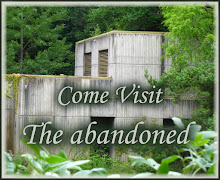What is a Bastille? One can discover a lot of information by looking at the origin of words. Bastille is an alternate spelling of bastide, which means fortification. Bastide, meaning "built," originates from the ancient Occitan language of southern France. It also has the idea of troops watching over a prison. In ancient times, a Bastille was a fortification often used by royalty to imprison their enemies.
Bastille Day is a national French Holiday commemorating the storming of the prison of Bastille on July 14, 1789. That victorious battle marked the beginning of the great French Revolution.
In those days, the Bastille had come to symbolize the absolute and arbitrary power of King Louis the 16th. When the French people captured the Bastille, they proclaimed their freedom from the King’s oppressive rule.
Though the Bastille held just seven prisoners when it was captured, seizing the prison became a symbol of liberty and of the people’s fight against tyranny. This is when the Tricolor flag was first flown, symbolizing the Republic's three great ideals: Liberty, Equality and Fraternity for all French citizens.
Though the Bastille held just seven prisoners when it was captured, seizing the prison became a symbol of liberty and of the people’s fight against tyranny. This is when the Tricolor flag was first flown, symbolizing the Republic's three great ideals: Liberty, Equality and Fraternity for all French citizens.
The capture of the Bastille marked the end of absolute monarchy. It led to the birth of the sovereign Nation of France and eventually, in 1792, the creation of the First Republic.
La Marseillaise was written in 1792 and declared the French national anthem in 1795. The words of this song are profound and heart-stirring. If you get the chance, read the words--and listen to the music. It is beautiful.
On the first anniversary of the fall of the Bastille, delegates from every region of France gathered in Paris to proclaim their allegiance to a single national community during the Fête de la Fédération — it was the first time in history a people had claimed their right to self-determination.
Benjamin Raspail, a politician and painter-engraver during the French Revolution recommended July 14 should become a yearly celebration. And so July 6, 1880, Bastille Day was declared a National French holiday.
La Marseillaise was written in 1792 and declared the French national anthem in 1795. The words of this song are profound and heart-stirring. If you get the chance, read the words--and listen to the music. It is beautiful.
On the first anniversary of the fall of the Bastille, delegates from every region of France gathered in Paris to proclaim their allegiance to a single national community during the Fête de la Fédération — it was the first time in history a people had claimed their right to self-determination.
Benjamin Raspail, a politician and painter-engraver during the French Revolution recommended July 14 should become a yearly celebration. And so July 6, 1880, Bastille Day was declared a National French holiday.
Just as in the United States, where the signing of the Declaration of Independence signaled the start of the American Revolution, so in France the storming of the Bastille began the Great Revolution which changed the face of France for all time. In both countries, a national holiday symbolizes independence, a new form of government and freedom from tyranny.
To this day, the capture of the Bastille has great significance for the French people. The holiday symbolizes their freedom from oppression and commemorates the birth of the Republic of France. This celebration of freedom continues in modern times, as Bastille Day.
Have a lovely weekend and Happy Postcard Friendship Friday!
* BADGE: When you submit a postcard, be sure to put a link back to this page. You can copy and paste the PFF badge, which has the link embedded. Thank you!
* THEMES: You don't have to stick to the theme I choose each Friday. Just put up the postcards you love and tell us why you like them.












No comments:
Post a Comment